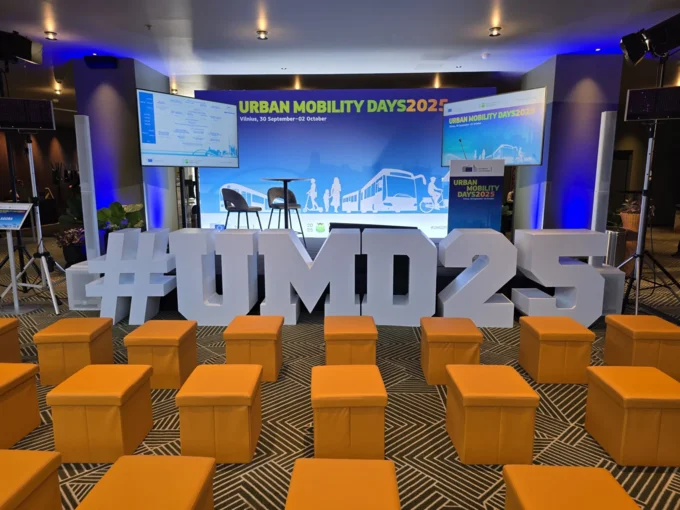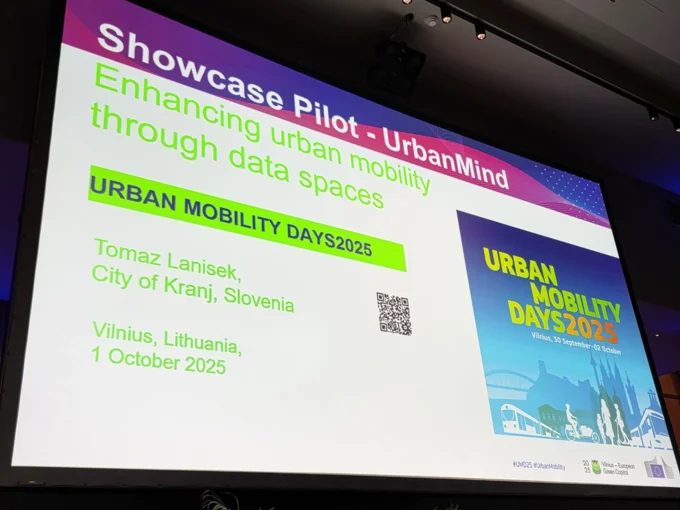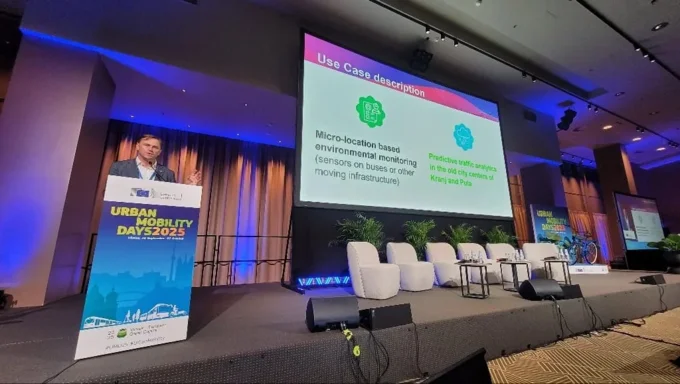Urban Mobility Days: Presentation of the UrbanMind Project
In the beginning of October, Urban Mobility Days 2025 took place in Vilnius, Lithuania - an event that every year brings together European cities, decision-makers, and industry participants to discuss the latest trends and solutions in the field of sustainable mobility. The event provides an opportunity for cities to exchange experiences, showcase good practices, and connect with European policies and initiatives that are shaping the future of mobility.

Modern cities face a variety of challenges in mobility: policies are stricter, citizens require larger personalization and automation of city services, both internal mobility, as well as supply and value chains are becoming more complex.
To deal with this rapidly changing mobility landscape we need new ways of collaboration among all stakeholders, without compromising privacy, safety and security. To collect and use data of different city-related processes, it is necessary to follow common standards of data infrastructure, governance and security design. The platforms adhering to the highest level of standards in data storage, sharing, governance and security, aligned with strict internationally aligned conventions are referred to as data spaces.
Recently a Data Space for Smart Communities blueprint was developed (European Data Space for Smart Communities), proposing a unified set of standards for building smart community data spaces. The technological part includes the Universal Trust Data Registry (for trust and verification of participants), the Authorization Policies Store (for access rules and security), and the Federated Catalogue (for data discovery and linkage).

Equally important are the so-called Minimal Interoperability Mechanisms (MIMs), which establish common rules for interoperability. In practice, this means that data is collected and described in a uniform way (MIM1 and MIM2), personal data is adequately protected (MIM4), AI algorithms are transparent and explainable (MIM5), and the entire system is safeguarded against misuse (MIM6). The use of these building blocks ensures that solutions are developed in line with European standards and are transferable and applicable across different cities.
The consortium, lead by the City of Kranj and City of Pula, together with Riko and 3fs built the UrbanMind data space based on the DS4SSCC Data Space Blueprint. Two use cases are currently being implemented based on the underpinning data space infrastructure – traffic mapping and microlocation-based environmental monitoring. In Kranj and Pula movement sensors at intersections monitor traffic and detect congestion, while environmental sensors on buses measure air quality and other environmental parameters. These data are collected and connected in a unified platform, which enables analysis and supports decision-making for more sustainable mobility.
The participation of representative of the consortium, Tomaž Lanišek, at Urban Mobility Days was an opportunity to share their work to a wider European audience and encourage other cities to invest in digital infrastructure in mobility, contributing, ultimately, to the citizens’ well-being and quality of life.
